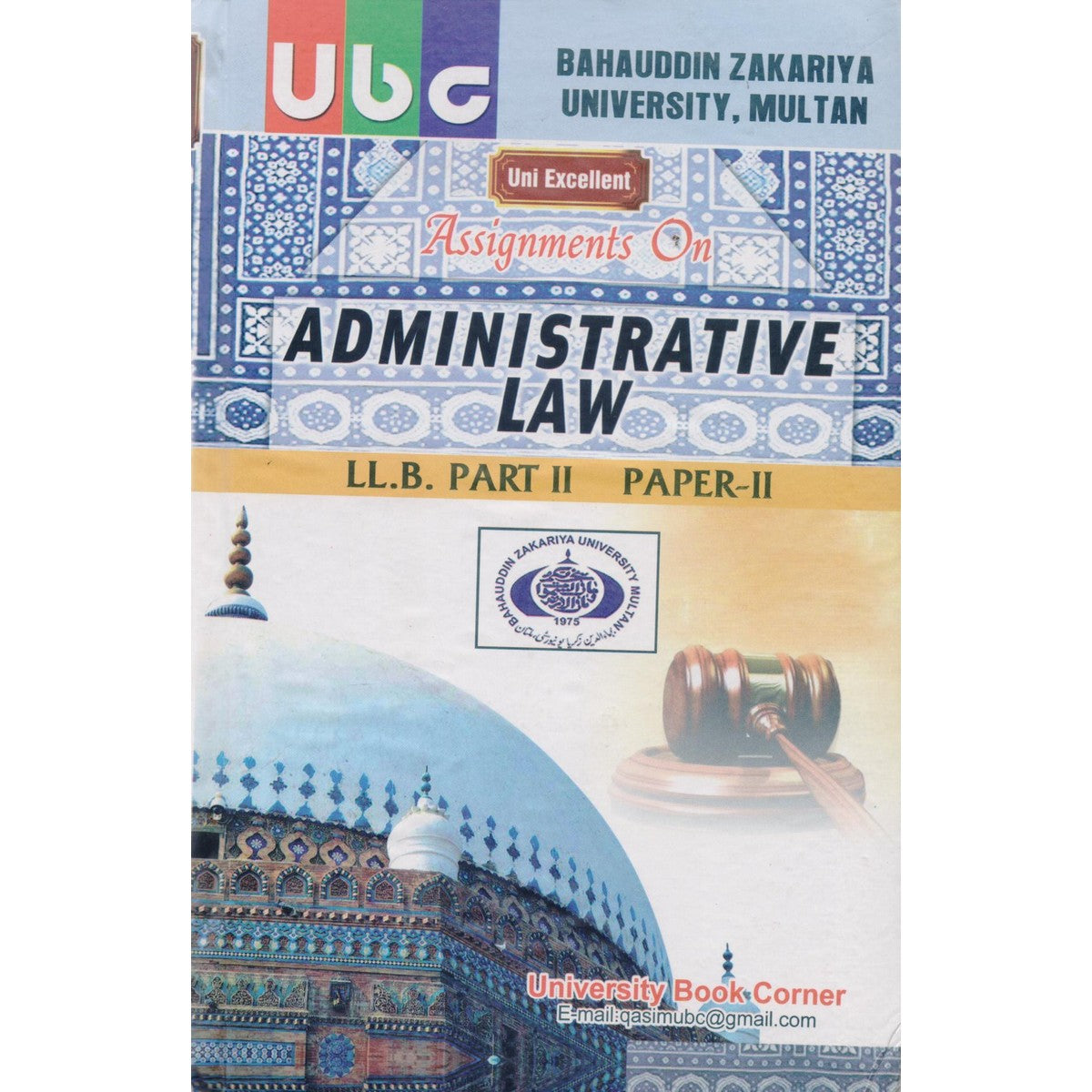Books Hub
UBC Assignments on Administrative Law LLB
UBC Assignments on Administrative Law LLB
Couldn't load pickup availability
UBC (University of British Columbia) assignments in Administrative Law for LLB students typically focus on understanding the legal framework that governs public administration, decision-making processes, and the relationship between governmental agencies and individuals. These assignments aim to help students grasp the intricacies of administrative law and its application in real-world legal contexts.
General Description of Administrative Law Assignments for LLB:
-
Legal Theories & Principles:
-
Assignments might require students to analyze foundational concepts such as judicial review, delegated legislation, natural justice, and the doctrine of separation of powers.
-
Students will be asked to explain the scope and limits of administrative discretion, focusing on how administrative bodies exercise powers and the principles governing their actions.
-
-
Case Studies & Judicial Decisions:
-
A significant portion of the assignment might be based on analyzing leading case law that illustrates how administrative decisions are challenged in courts, such as cases involving the right to a fair hearing or the reasonableness of administrative actions.
-
Students may be required to evaluate how courts have applied certain doctrines, like procedural fairness and substantive fairness.
-
-
Statutory Interpretation:
-
Students may need to interpret relevant statutes or regulations that govern administrative processes, analyzing how statutory interpretation influences the functioning of administrative bodies.
-
-
Practical Application:
-
The assignments often incorporate hypothetical scenarios where students apply their knowledge to solve practical legal issues, such as challenges to administrative decisions, appeals processes, or discussions on remedies like certiorari, mandamus, and prohibition.
-
-
Policy and Reform Discussions:
-
Students might be asked to consider current policy issues in administrative law, such as the accountability of administrative agencies, the transparency of decision-making processes, and potential reforms to improve administrative fairness.
-
-
Research and Critical Thinking:
-
The assignments often require students to conduct independent research, critically engage with legal theories, and evaluate the effectiveness of administrative law in ensuring justice and fairness in governmental decision-making.
-
Common Topics:
-
Judicial Review of Administrative Actions: The grounds for judicial review, such as illegality, irrationality, and procedural unfairness.
-
Delegated Legislation: The extent to which Parliament or a legislature can delegate its powers to other bodies.
-
Administrative Discretion: Understanding the limits and oversight of discretion exercised by public officials or administrative agencies.
-
Natural Justice: The right to a fair hearing and the importance of impartiality in administrative decision-making.
-
Public Law and the Role of Tribunals: Exploring the alternative mechanisms to court-based remedies, such as specialized tribunals for dispute resolution.
Learning Outcomes:
-
Understanding of Legal Framework: Students gain an in-depth understanding of how administrative law shapes the interaction between individuals and the state.
-
Analytical Skills: They develop the ability to critically analyze administrative decisions and apply legal principles to evaluate their validity.
-
Practical Insight: Exposure to real-world administrative challenges and the remedies available for affected parties.
These assignments are designed to prepare students for practice in areas like public law, regulatory law, and policy-making, equipping them with the tools to assess and critique administrative actions effectively.
Share


